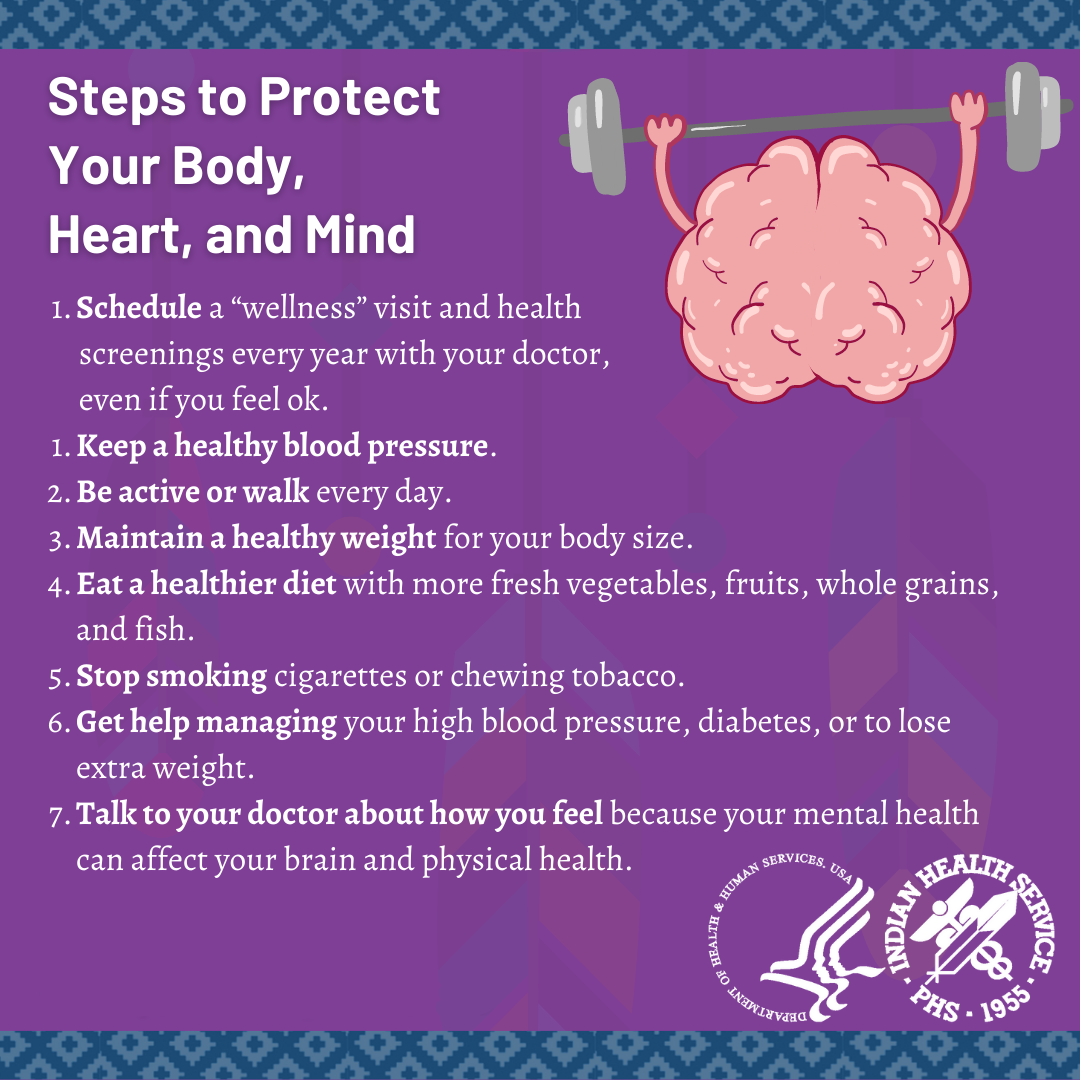Alzheimer's Awareness Month
Join IHS in Recognizing Alzheimer's and Brain Health Awareness Month: June 2023
June is Alzheimer's and Brain Awareness Month. Arm yourself with the correct information to help you, your patients, and fellow team members maintain healthy brains as we age and provide better care for those living with Alzheimer's disease and other forms of dementia.
- Can you spot the 10 early signs of dementia or Alzheimer's in your patients?
- Do you know what you can do to protect your brain health and reduce your risk for dementia?
- Are you aware of the current IHS opportunities to support individual and clinical systems improvements for dementia?
Dementia is a condition that affects our memory and thinking, interfering with our ability to care for ourselves and those we love. Alzheimer's disease is the most common cause of dementia. It affects more than 6.5 million people in the U.S. because Alzheimer’s disease and other dementias increase with age, often confused with the normal changes of aging. But significant changes in memory, thinking, and one’s ability to manage daily life that come with dementia are not a normal part of aging.
- Visit the CDC for 10 Warning Signs of Alzheimer's
- View and download a flyer set with 10 signs of memory changes or thinking problems that might be dementia from the International Association for Indigenous Aging (IA²)
If you or someone you care about or care for has difficulty with memory, solving problems, or managing affairs, get it checked out. A primary care doctor, nurse practitioner, or PA can do simple brain tests in the office like the Mini-Cog© , a fast and easy screening test that can catch dementia early. They can also order blood tests that may uncover treatable conditions that affect memory and thinking but are not dementia.
While there is no cure yet, we can do so many things to help slow the progression of Alzheimer's and other causes of dementia and improve the lives of those living with these conditions. It all starts when we see, acknowledge, and talk to healthcare providers about something not being quite right.
Steps to Reduce Dementia Risk
The same things that can help slow the progression of dementia can also protect your brain health. Research has found that at least 35% of dementia risk may be modifiable, meaning you can take proactive steps to help protect yourself. Brain health promotion and dementia risk reduction start early, years or even decades before cognitive decline becomes evident. The most significant future impact comes from early and mid-life changes, not waiting until your 60s.
The good news? Lowering the chance of developing dementia isn't so complicated. Heart health equals brain health: the same things we do to protect our heart, like maintaining regular physical activity, healthy weight, healthy blood pressure, and healthy blood sugar, also protect our brain. Avoiding commercial tobacco and alcohol use reduces our risk for dementia, as does avoiding head injury and hearing loss at all ages, especially when we are young. Interestingly, it seems that managing hearing loss also reduces our risk. Anyone having trouble hearing or understanding family members – get your hearing checked. Finally, a good sleep schedule and treating depression are essential to maintaining a healthy brain. That's 10 things to keep your brain healthy and reduce your risk of dementia.
How IHS is Helping
Resources are available through the IHS Alzheimer's Grant Program to help Tribal, Urban, and IHS health programs better care for those living with dementia and their caregivers. The Alzheimer's Grant Program was funded by Congress in 2021 to address the dementia challenges facing tribal communities, people living with undiagnosed and diagnosed dementia, and their caregivers. Tribal and Urban leaders set IHS priorities for the newly funded program.
Alzheimer's and Brain Awareness Month reminds us of all that we can do personally and as healthcare leaders, providers, and advocates to support the wellness of our elders and maintain their vital role in the lives of our families, communities, Tribes, and Nations.
More Resources
Discover excellent brain health and dementia educational resources for use in your community, developed with and for Indian Country through a grant from the Centers for Disease Control and Prevention (CDC).
If you need help accessing resources or thinking about your patient care and services for elders, please get in touch with the IHS Elder Health Team by emailing Dr. Jolie Crowder, National Elder Care Consultant.



